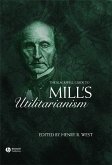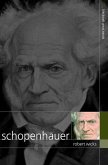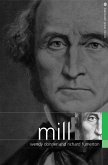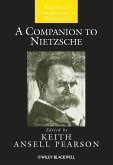This timely book by philosopher Peter Dews explores the idea of evil, one of the most problematic terms in the contemporary moral vocabulary. * Surveys the intellectual debate on the nature of evil over the past two hundred years * Engages with a broad range of discourses and thinkers, from Kant and the German Idealists, via Schopenhauer and Nietzsche, to Levinas and Adorno * Suggests that the concept of moral evil touches on a neuralgic point in western culture * Argues that, despite the widespread abuse and political manipulation of the term 'evil', we cannot do without it * Concludes that if we use the concept of evil, we must acknowledge its religious dimension
Dieser Download kann aus rechtlichen Gründen nur mit Rechnungsadresse in A, B, BG, CY, CZ, D, DK, EW, E, FIN, F, GR, HR, H, IRL, I, LT, L, LR, M, NL, PL, P, R, S, SLO, SK ausgeliefert werden.









